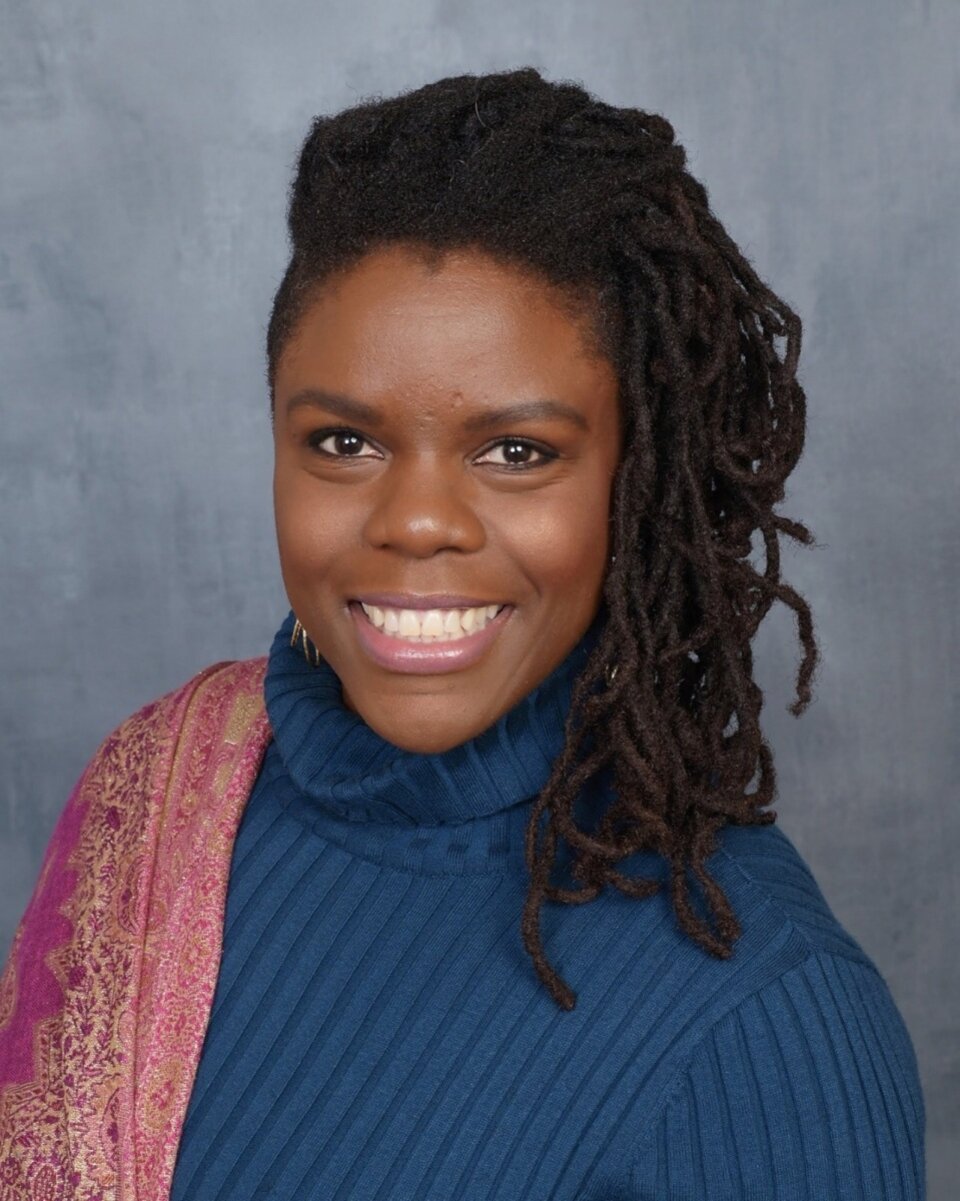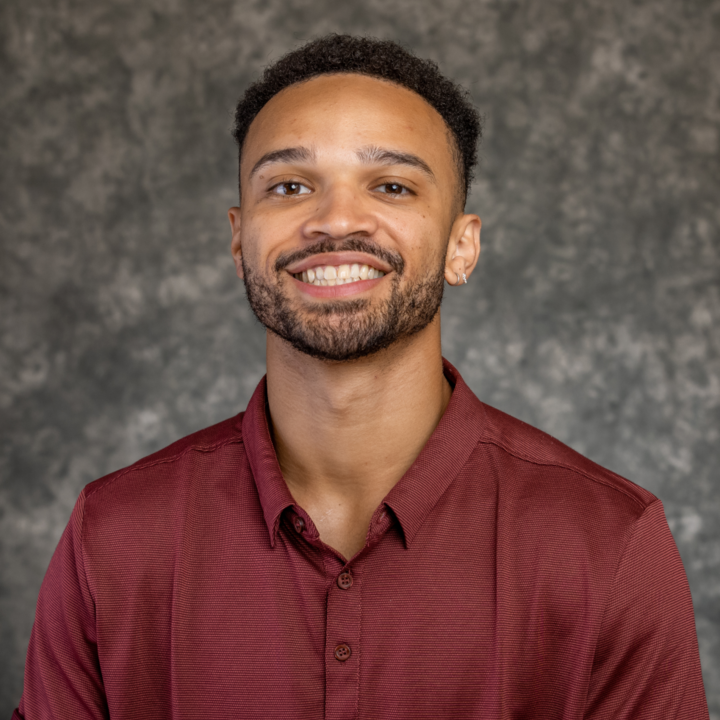Educational Leadership and Higher Education Specialization
Doctor of Philosophy (Ph.D.) in Educational Studies
Preparing Future Scholars in Academia
The Doctor of Philosophy in Educational Studies with a specialization in Educational Leadership and Higher Education, provides academic preparation and professional development for those individuals interested in the study of educational leadership and higher education.
The Ph.D. program is a blended program. Students complete the majority of their coursework online and are required to complete at least two summer research seminars offered in a blended format (some online work with 1 week on campus). The Ph.D. requires students to complete a minimum of 6 credit hours of an on-campus summer research seminars.
Concentrations
This program allows students to choose from three different areas to focus. Below are the three concentrations which are available. Click on a concentration to learn more information.
Higher Education Community Colleges P-12 Educational Leadership
Courses are offered on the regular semester and summer session schedule of the University of Nebraska-Lincoln. Summer research seminars are offered during the summer in a blended fashion (time-intensive on-campus experiences complemented by additional online content) to facilitate the on-campus research seminar requirement. Courses are announced in the UNL schedule available online and students register for courses using the University web-based enrollment and billing system.
New applicants should be aware that not all advisors can accept new students every year. We recommend that you contact the individual faculty members to learn about their scholarly interests and advising capacity in the course of preparing your application for admission.
#LEADBIGRED
Request Information
Cost
*EDAD tuition is classified under the University's base tuition rate*
4-5 years
Program Length
63*
*Credits Required beyond the master’s is typical
Hybrid
Format
Not Required
GRE/Entrance Exam
Faculty Advisors
Learning the research interests and expertise areas of potential faculty advisors, particularly at the doctoral level, is an important consideration for prospective students. We encourage prospective applicants to learn about faculty advisors via the links below and through the “Meet our Team” link on the “About EDAD” tab.” Based on capacity, the following faculty members serve as advisors in this program:
Our Unique Program
Faculty
- Students learn from faculty who conduct and share leading research on contemporary challenges and opportunities in higher education. These scholars have devoted their careers to teaching, researching, discovering, and sharing what works in higher education administration.
- Students also learn from faculty with decades of combined experience as higher education administrators and leaders who have lived and breathed the work of directors, coordinators, and supervisors at a variety of higher education institutions.
- Courses are taught by current UNL administrators and carefully selected external professors, bringing an extra dimension of real-world credibility and authenticity to the program.
Individual Attention, Support, & Hands-on Learning
- Students apply administrative theory and current research to their unique work environments while building supportive relationships with faculty and colleagues. Students leave the program with an expanded network of support, connections, and perspective.
- Multiple opportunities to grow through additional, no-cost learning opportunities such as the Women in Educational Leadership Conference (WELC), the Critical Issues Forum, and the Sybouts Student Research Symposium.
Access to Leading Higher Education Professionals
- Experienced college and university administrators share expertise from the very beginning on current issues, such as enrollment, retention, access, campus culture and climate, law, student involvement, equity, and other key topics.
From Day One
- With a thorough background in theory and experience with its application, our graduates are Day-One-Ready for student engagement and success, recruitment and retention of students, faculty and staff, human and alumni relations, and other aspects of higher education administration.
Courses and Schedule
- The Ph.D. degree in Educational Studies through the Educational Administration department requires a total of 63 credit hours post-admission, comprising 24 credit hours of core and concentration courses, 6 credit hours of electives, and 18 credit hours of research and methodology coursework, plus 15 credit hours of dissertation writing. The program is designed to be completed in as few as 5 years, depending on a students' dissertation project. Students are expected to take two courses per academic term (6 total per year) and advance to candidacy in their third year. Students who pursue full-time study may be able to complete sooner than this and, especially if they reside locally, may be able to avail themselves of even more professional development opportunities in the pursuit of a scholarly research career. Admitted students benefit from the formation of a doctoral supervisory committee at the outset of their studies, providing a community of peers and faculty members to pursue shared scholarly endeavors and to support each student's successful completion.
Application Process
The application deadline for Fall admission is January 15.
Graduate Admission Requirements
- Application for Admission with $50 non-refundable application fee.
- Transcripts from previous institutions. Unofficial transcripts are permitted during admission; official transcripts are required prior to enrollment.
- If the student’s native language is not English, verification of English proficiency is required.
- If International: upload copies of all college- or university-level transcripts or mark sheets (records of courses and marks earned), with certificates, diplomas, and degrees plus certified English translations.
- Official documents are required from all students who are admitted and enroll. Photocopies of certified records are not acceptable. International students enrolled in other U.S. institutions may have certified copies of all foreign records sent directly to the Office of Graduate Studies by their current school’s registrar office.
- If applicant is not a US citizen and expects an F or J visa: financial information.
- Applicants must also fulfill any additional requirements the department specifies at the time of application.
Major Admission Requirements
- Personal Statement- Your statement should address the following three areas (2-3 pages):
- 1. How does a doctoral degree figure into your career trajectory and goals as an educator?
- 2. How will your doctoral studies contribute to the vision of this department and in relation to the scholarship/expertise of faculty members with whom you would like to work?
- 3. What is your plan and strategy to complete your degree in a timely manner? (For instance, online coursework, occasional and/or required on-campus residency requirements, development of research and writing skills.)
- Essay (maximum 4 pages):
- Describe what you see as one pressing educational challenge or opportunity, why this challenge/opportunity is important to address, and how you might address it through your doctoral studies and/or dissertation work. (Explain how your scholarly inquiry regarding this challenge could add to the research literature.)
- Resume
- Three References (name and contact information)
- Writing Samples: Upload two academic/scholarly writing samples. Applicants typically submit papers written for other courses or academic programs that give the admissions committee a sense of the applicant's academic writing skill and background.
APPLY NOW
"My work as an administrator at a community college brought more questions than answers, so I knew that community colleges would be one of my research interests. As a working professional who lived in New York, I needed a hybrid program that had: a good reputation, accomplished scholars, and opportunities to engage in research. I found all in the Department of Educational Administration. "
Evangela Q. Oates, Ph.D., Associate University Librarian for Student Success, University of Minnesota, Twin Cities


"My UNL Ph.D. has opened doors allowing me to have the career I always wanted; being an education professor at a university. I have accomplished other things in my career, but my work at UNL is the achievement of which I am most proud. You don't enroll in EDAD for a degree that checks a box; you do it to make a substantive contribution to your field and create a profound change in yourself."
Mark Thompson, Ph.D., Assistant Professor of Secondary Education, Nebraska Wesleyan University
Frequently Asked Questions
Frequently Asked Questions
Admissions Process
When will I hear back about my application status?
Applicants to the Ph.D. program will be notified of their admission or denial to the program 5 weeks after the application submission deadline. You may contact our EDAD Graduate Secretary, Cindy DeRyke at deryke@unl.edu or tel:402-472-3726 if you have any questions about your application.
Is a Graduate Record Examination (GRE) required in my application?
No, the Ph. D. program does not require applicants to take the GRE.
Do I need to identify a potential faculty advisor?
We strongly encourage applicants to get to know our faculty through their online profile and scholarship and to make note of any interconnections with their own interests. A thoughtful explication of any point of overlap or connection between applicant’s scholarly or professional interests and a potential advisor will serve to strengthen an applicant’s materials. Applicants will be prompted to select faculty members whose interests may align with theirs during the application process. This helps inform the department on which faculty members participate in the application review and may be assigned an advisor at the start of their program. After researching faculty profiles and learning about our faculty’s professional and scholarly interests, applicants may reach out to get to know prospective advisors before submitting their final application materials.
I was not able to meet with a prospective advisor before submitting my application. Is this a problem?
Yes. Applicants may inquire with individual faculty members about expected openings for new advisees and regarding common interests. After researching faculty profiles and learning about our faculty’s professional and scholarly interests, applicants may reach out to get to know prospective advisors before submitting their final application materials. For example, if a prospective student believes a faculty member in the Ph.D. program would be a good match for their interests, they are encouraged to reach out to that person to discuss a potential fit.
I was not able to meet with a prospective advisor before submitting my application. Is this a problem?
No. A strong application will identify potential advisor(s) and describe how that faculty member’s scholarly or professional interests may complement the applicant’s interests. Explication of any point of overlap or connection between applicant’s scholarly or professional interests and a potential advisor will serve to strengthen an applicant’s materials. These connections can be made by carefully reviewing faculty scholarship and professional experience. Examples of how applicants can get to know faculty include reading their faculty profile, reading their published research articles, and learning about their professional experience. While applicants should reach out to inquire with individual faculty members about expected openings for new advisees and regarding common interests, faculty may not be available to meet with each individual applicant interested in working with them.
How are admissions decisions decided?
In the Ph.D. program, all faculty members review applications and consult with each other on admissions decisions. At the end of that process, individual faculty members make admission recommendations to work with specific applicants.
Program Requirements & Format
Is a master’s degree required?
Yes. Our program is designed for those who already have a master’s degree in any discipline (not just education). Applicants do not need to complete their master's degree before application but must have it completed before enrollment.
How many credits are required for completion of the PhD program?
Once admitted to the program, students are required to complete 63 credit hours at UNL after admission for doctoral study. This includes 15 regular courses (3 credit hours each) plus 15 dissertation credit hours—regardless of how many graduate hours one may have already acquired before admission. These credits come from five areas: 1) core courses, 2) concentration courses, 3) electives for scholarly and professional development, 4) research and methodology series, and 5) summer research seminars, and dissertation. All PhD students are also required to complete a comprehensive examination during the semester prior to enrolling in dissertation credits.
How long do I have to complete the program?
Doctoral students have eight years from the end of the semester in which their program of studies is approved by the Graduate Studies Office to complete their degree. All coursework, including any required research/language tools, must be completed, comprehensive exams taken and the dissertation written, defended and deposited within that time frame.
How many credits are required for the program?
Once admitted to the program, students are required to complete 63 credit hours at UNL after admission for doctoral study. This includes 15 regular courses (3 credit hours each) plus 15 dissertation credit hours—regardless of how many graduate hours one may have already acquired before admission. These credits come from five areas: 1) core courses, 2) concentration courses, 3) electives for scholarly and professional development, 4) research and methodology series, and 5) summer research seminars, and dissertation.
Does this program require a Capstone or Comprehensive Exam?
Yes. All PhD students are required to complete a comprehensive examination during the semester prior to enrolling in dissertation credits.
Is the PhD program all online?
All courses are offered virtually/online with the exception of hybrid research seminars offered in the summer that require one week-long residency on-campus. Students typically arrange to stay in the Omaha/Lincoln area for these residencies. A minimum of 6 credit hours of on-campus summer research seminars are required for the PhD.
Can I complete the program part-time?
Yes. The program is designed for those who work full time and study part time. It is expected that students take 2 courses per term, including over the summer, for a total of 6 courses per year. Full time students take 3 courses per semester and 2 over the summer. To ensure that students make timely academic progress, with few exceptions we don't accept students who can only complete 1 course at a time for their entire program. Students are encouraged to take a temporary formal leave of absence, as needed, to attend to life and career circumstances.
Program Costs & Funding Opportunities
How much does it cost to complete the Ph.D. Program?
The Ph.D. program cost and tuition are determined by UNL graduate studies. Please refer to the most current tuition and fee information for graduate students on the UNL Graduate/Professional tuition website.
Are there scholarships or other funding available?
Yes. There are three primary areas we recommend exploring for funding opportunities: Office of Scholarships and Financial Aid, Office of Graduate Studies, and the Educational Administration Department funding opportunities. Each area offers various options for funding your educational journey and we recommend exploring each as eligibility may vary. Graduate Assistantships are offered across the institution and within the department. Assistantships are awarded to individuals who plan to study full-time on-campus and may be renewed for a period of up to four years. Graduate Assistants work 19.5 hours per week in direct support of and in collaboration with faculty members on research, teaching, and service duties, as assigned. The expected role of a GA is that of research apprenticeship, to contribute to faculty research and teaching, and simultaneously form one’s own scholarly identity and research/policy agenda. Learn more at the Office of Graduate Studies.
Prior Coursework
Can I try out a few classes and apply later to the Ph.D. program?
Yes. Prospective students are able to enroll in UNL graduate courses as a non-degree seeking students. As described by UNL, students meeting the minimum admission requirements may enroll in graduate courses without acceptance in a graduate certificate or degree program. While a student may enroll in courses as a non-degree seeking student, taking courses prior to acceptance into the Ph.D. program does not advantage applicants in the application process. Non-degree courses taken after Spring 2022 do not count toward the Ph.D. program unless in special circumstances (outlined in greater detail below). We strongly encourage students to formally apply and be admitted to our programs before taking our classes.
I took a previous course that looks similar to required coursework. Will this course automatically count toward my Ph.D. program?
Graduate Studies requires a minimum of 90 graduate-level credit hours for a PhD degree, and so students and advisors must identify sufficient prior graduate-level credit hours beyond the 63 for the PhD to meet this minimum. These credit hours typically come from a student’s masters degree, but may be from other graduate coursework. UNL disallows the use of graduate credit toward two equivalent degrees. That is, graduate-level courses that satisfy the requirements of a prior doctoral degree already awarded (PhD, EdD, EdS) cannot be transferred or included in a PhD program of study. However, graduate-level coursework toward a doctoral degree that has not been awarded (e.g. in the case of a student transferring from another doctoral program) can be counted only under special circumstances in which it would not make sense for a student to take essentially the same course for a second time. Our policy is to consider transfer of prior coursework for two areas only: (1) core courses and (2) research methodology courses. Any request to transfer in doctoral-level coursework to count as equivalents of Ph.D. program requirements is subject to an approval process.
Career Paths
I want to teach in a university setting. Can this degree help me achieve that goal?
Yes. The Ph.D. provides training to become an educational leader, researcher, and scholar-practitioner. The disciplinary training—depending on a person’s program of studies—includes subjects such as leadership, organizational theory, multicultural competence, strategic planning, instructional administration, student affairs administration, educational legal issues, and social science research methods, among others.
The degree may qualify individuals to teach these subject matters for colleges and universities, often in the role of clinical professor, professor of practice, or as an adjunct instructor, or in addition to other administrative duties or careers, for example. It is recommended you talk with many such individuals at a variety of institutions and the type of institution you aim to teach at to find out the career path to those roles.
To teach full-time as a professor of education typically requires a full-time commitment to doctoral training and extensive engagement with the academic disciplinary field that leads to a search for a tenure track faculty position or equivalent. This involves close work with faculty members within the department and across the field by conducting and presenting original scholarship, being active in professional academic associations, and establishing one’s own independent research agenda and academic reputation. Many of our graduates have found success in this route over the years, but it requires strategic planning from the very beginning. Talk to full-time faculty (in both tenure lines and scholarly professional lines) in and out of UNL for guidance regarding this career path.
Is the Ph.D. program only relevant to higher education research and careers?
No. The Ph.D. program has three concentration areas: P-12 educational studies, higher education studies, and community college studies. We take a broad view of education and its many contexts. Many of the courses and faculty member interests do focus on higher and postsecondary education. Nonetheless, the program comprises faculty members who research, teach, and advise in the area of P-12 education and postsecondary education. The core courses and many other courses purposefully engage a P-20 perspective and are relevant to educational settings outside of P-20 institutions too. Many students come from and/or go on to work in government, policy, research, and advocacy organizations, for example, outside of traditional teaching and learning institutions.


